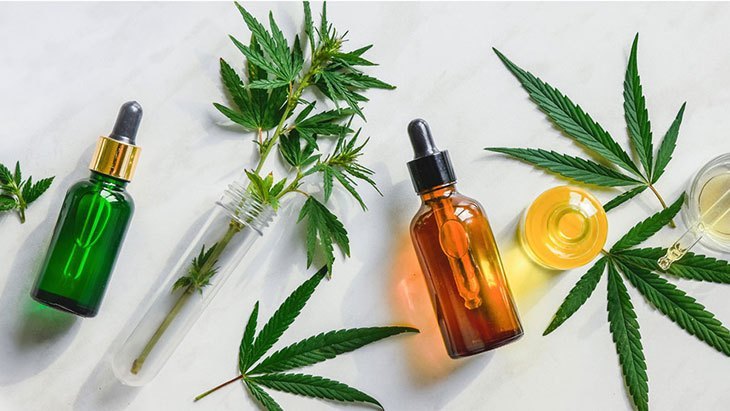Washington, DC: Members of a Congressional committee have, for the first time, advanced legislation to facilitate clinical cannabis research by allowing scientists to access [cannabis] and [cannabis] products manufactured in accordance with state-authorized [cannabis] programs.
Members of the House Energy and Commerce Committee voted today in favor of a substitute version of Congressman Earl Blumenauer’s HR 3797: The Marijuana Research Act of 2019. The substitute language amends the original bill by expediting the approval process for federal cultivation applicants and by providing scientists with the option to utilize products manufactured by state-licensed sources. Under current policy, FDA-approved protocols involving cannabis are strictly prohibited from utilizing cannabis grown under a state license.
“This proposed regulatory change is necessary and long overdue,” NORML Deputy Director Paul Armentano said. “In fact, NORML submitted comments to the US Federal Register in April explicitly calling for this change.”
He added: “Rather than compelling scientists to access [cannabis] products of questionable quality manufactured by a limited number of federally licensed producers, federal regulators should allow investigators to access the cannabis and cannabis-infused products that are currently being produced in the legal marketplace by the multitude of state-sanctioned growers and retailers. Doing so will not only facilitate and expedite clinical cannabis research in the United States and provide important data regarding the safety and efficacy of real-world products, but it will also bring about a long overdue end to decades of DEA stonewalling and interference with respect to the advancement of our scientific understanding of the cannabis plant.”
Under the existing regulatory system, which has been in place for some five decades, there is only one federally licensed entity — the University of Mississippi — that is permitted to cultivate [cannabis] for use in FDA-approved clinical studies.
Scientists have consistently criticized the poor quality of the University’s plants, which they say fail to accurately reflect the varieties of [cannabis] commercially available in the United States.
According to the federal government’s [cannabis] menu, scientists may currently select from no more than six varieties of pre-rolled cannabis cigarettes – none of which possess THC concentrations above seven percent or CBD concentrations above one percent. Other types of cannabis-infused products, like tinctures and concentrates, are not available for clinical study.
In 2016, the US Drug Enforcement Agency pledged to expand the pool of federally licensed entities permitted to grow cannabis. But, to date, the agency has failed to act on more than 30 applications before them.
Armentano concluded: “Legislative action is necessary in this arena because the DEA has proven time and time again that it is not an honest broker in this process. Despite promising over four years ago to expand the pool of federal licensees permitted to provide cannabis for clinical research, the agency has steadfastly refused to do so — leaving scientists with woefully inadequate supplies of cannabis and cannabis products available for human studies. The reality that most high-schoolers have easier access to cannabis than do our nation’s top scientists is the height of absurdity and an indictment of the current system.”
While the total number of peer-reviewed studies specific to cannabis has increased significantly over the past decade, a recent analysis published in Science Magazine affirmed that bulk of federal monies provided to fund this research is directed toward assessing “cannabis misuse and its negative effects.”
Today’s legislative advancement comes on the heels of the House Leadership announcing an upcoming vote on The Marijuana Opportunity, Reinvestment, and Expungement (MORE) Act, HR 3884 which had a legislative hearing in the Energy and Commerce Committee earlier this year. The committee is expected to waive its jurisdiction of the MORE Act in advance of an anticipated vote the week of September 21st. In the last two weeks, voters have utilized NORML’s action center and sent over 20,000 messages to Congress in support of the MORE Act.
For additional background on the issue of cannabis research, please see the op-ed, “The federal government must stop stifling medical [cannabis] research,” published in The Hill newspaper here.
###
NORML advocates for changes in public policy so that the responsible possession and use of [cannabis] by adults is no longer subject to criminal penalties. NORML further advocates for a regulated commercial cannabis market so that activities involving the for-profit production and retail sale of cannabis and cannabis products are safe, transparent, consumer-friendly, and are subject to state and/or local licensure. Finally, NORML advocates for additional changes in legal and regulatory policies so that those who use [cannabis] responsibly are no longer face either social stigma or workplace discrimination, and so that those with past criminal records for [cannabis]-related violations have the opportunity to have their records automatically expunged.
Find out more at norml.org and read our Fact Sheets on the most common misconceptions and myths regarding reform efforts around the country
For Immediate Release
Contact:
Paul Armentano
NORML Deputy Director
Paul@norml.org








